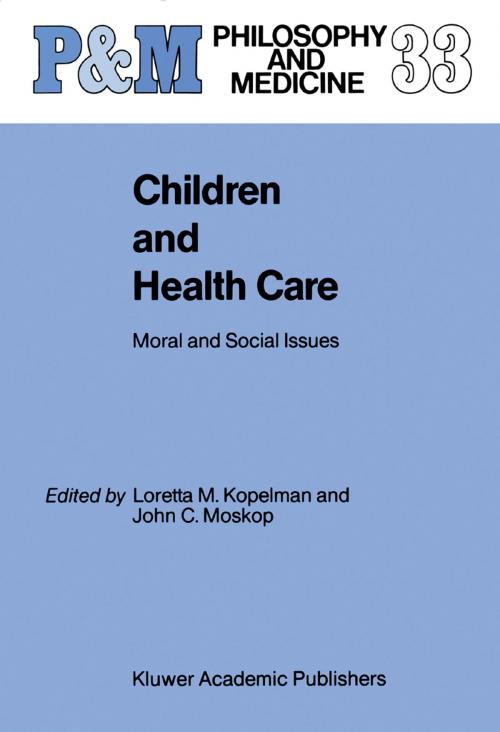Children and Health Care
Moral and Social Issues
Nonfiction, Health & Well Being, Medical, Specialties, Pediatrics, Reference, Ethics, Religion & Spirituality, Philosophy| Author: | ISBN: | 9780585274065 | |
| Publisher: | Springer Netherlands | Publication: | August 26, 2007 |
| Imprint: | Springer | Language: | English |
| Author: | |
| ISBN: | 9780585274065 |
| Publisher: | Springer Netherlands |
| Publication: | August 26, 2007 |
| Imprint: | Springer |
| Language: | English |
Before a separate Department of Medical Humanities was formed, the editors of this volume were faculty members of the Department of Pediatrics at our medical school. Colleagues daily spoke of the moral and social problems of children's health care. Our offices were near the examining rooms where children had their bone-marrow procedures done. Since this is a painful test, we often heard them cry. The hospital floor where the sickest children stayed was also nearby. The physicians, nurses, and social workers believed that children's health care needs were not being met and that more could and should be done. Fewer resources are available for a child than for an adult with a comparable illness, they said. These experiences prompted us to prepare this volume and to ask whether children do get their fair share of the health care dollar. Since the question "What kind of health care do we owe to our children?" is complex, responses should be rooted in many disciplines. These include philosophy, law, public policy and, of course, the health professions. Representing all of these disciplines, contributors to this volume reflect on moral and social issues in children's health care. The last hundred years have brought great changes in health care tor children. The specialty of pediatrics developed during this period, and with it, a new group of advocates for children's health care. Women's suffrage gave a political boost to the recognition of children's special health needs.
Before a separate Department of Medical Humanities was formed, the editors of this volume were faculty members of the Department of Pediatrics at our medical school. Colleagues daily spoke of the moral and social problems of children's health care. Our offices were near the examining rooms where children had their bone-marrow procedures done. Since this is a painful test, we often heard them cry. The hospital floor where the sickest children stayed was also nearby. The physicians, nurses, and social workers believed that children's health care needs were not being met and that more could and should be done. Fewer resources are available for a child than for an adult with a comparable illness, they said. These experiences prompted us to prepare this volume and to ask whether children do get their fair share of the health care dollar. Since the question "What kind of health care do we owe to our children?" is complex, responses should be rooted in many disciplines. These include philosophy, law, public policy and, of course, the health professions. Representing all of these disciplines, contributors to this volume reflect on moral and social issues in children's health care. The last hundred years have brought great changes in health care tor children. The specialty of pediatrics developed during this period, and with it, a new group of advocates for children's health care. Women's suffrage gave a political boost to the recognition of children's special health needs.















